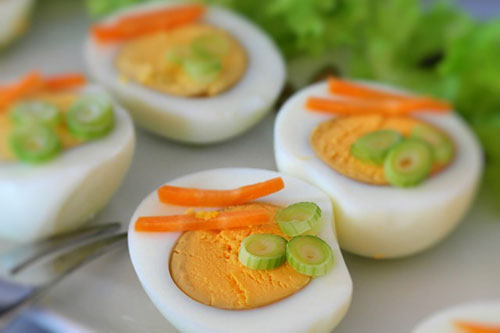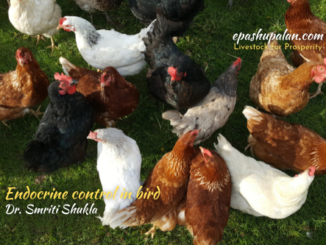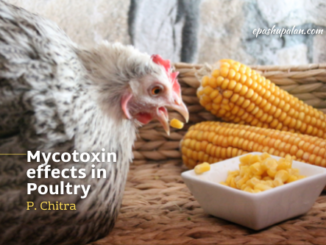Introduction
Consumers are always in search of newer products and are driving the market for a new category of food with potential health benefits well beyond those traditionally recognized. In the context of functional foods eggs are considered by most consumers to be a healthy food. Due to its excellent nutrients profile, less cost and versatility in food preparation, egg is a popular food item for all societies of the world. During the assessment of its potential as a food product, the avian egg’s complexity is a major challenge for food scientists and nutritionists eager to elucidate its biochemical processes. Chicken eggs are the most commonly eaten eggs. They supply all essential amino acids for humans and provide several vitamins and minerals, including retinol (vitamin A), riboflavin (vitamin B2), folic acid (vitamin B9), vitamin B6, vitamin B12, choline, iron, calcium, phosphorus and potassium. They are also a single-food source of protein.
Designer egg
Designer eggs are those in which the content has been modified from standard egg. The content of the chicken egg can be changed in such a way as to be more healthful. This designer egg is free from all negative factors and prepared by changing the diet of chicken or manipulating the immune system of laying chickens. Thus, Designer eggs are essentially an ideal food and vitamin supplemented product which offers the benefits like reduced cholesterol content, high unsaturated fatty acids, ideal omega-6 to omega-3 ratio, cardiac benefits, etc.

Types of designer egg and their significance
Manipulation of fatty acid profile in eggs
The incorporation of ω-3 PUFA into eggs has been used by scientists to alter ω-6: ω-3 ratio towards the desired dietary ratio. Sources of ω-3 PUFA such as fish oils, fish meal, marine algae or a combination of several of the above can be used as supplements in layer diets. However, supplementation with fishmeal or fish oil can exert a negative influence on the sensory properties of the egg. Commercial table eggs contain a high proportion on n-6 PUFA (mainly 18:2n-6) but are poor source of n-3 fatty acids. Therefore, designer eggs production is mainly concentrated on the enrichment of egg lipids with n3 fatty acids.
Attempts to produce omega-3 eggs can be achieved in two ways:
- Produce an egg enriched in linolenic acid, which is a precursor of DHA and is protective against fatal ischemic heart disease. For this purpose, hen’s diet is relatively rich in flaxseeds or linseeds as a result of which the egg yolk is enriched with linolenic acid and hence DHA levels are raised.
- Directly, include pre-formed DHA in hen’s diet in form of fish oil.
One large designer egg supplies more than 600 mg of most need omega-3 fatty acids and 6 mg tocopherols; it would still have additional beneficial effects for egg consumers due to its balanced ratios of polyunsaturated /saturated fatty acids (1:1) and omega-6/omega-3(1:1). Thus, designer eggs offer an alternative choice of food product to today’s nutrition-health conscious consumers around the world.
- ɷ-3 (Omega-3 Fatty Acids) enrichment
- CLA enrichment
- DHA enrichment
Reduction in cholesterol content
A large egg contains about 213 mg of cholesterol per yolk. Egg cholesterol levels are very difficult to influence by dietary manipulation, but some improvement has been reported from supplementing with copper and chromium. Enzymes have been reported to increase the percentage of egg albumen. Supplementation of natural products like garlic, probiolac and Lactobacillus acidophilus in poultry feed help to reduce egg yolk cholesterol.
Herbal enriched super eggs
Phytobiotics or plant-derived products containing several plant secondary metabolites can be used in poultry feed to improve the performance of hen and to produce herbal enriched super eggs. Chicken feed will be supplemented with herbs like garlic/onion leaves, spirulina, basil leaves, turmeric powder, citrus pulp, flaxseed, red pepper, fenugreek seeds etc. These super eggs will be having a lower LDL cholesterol, immunomodulator property, antioxidant, anticarcinogenic properties, higher omega-3 fatty acids etc. All these indicating that the overall health promotion in hens as well as possible health promotion in humans is possible by popularizing herbal enriched eggs.
Vitamin E enrichment in Eggs
As ω-3 fatty acid enriched eggs are more susceptible to lipid oxidation, supplementation with vitamin E is generally recommended to stabilize egg lipids against rancidity and extend the shelf life of the product.
Immunomodulating Egg Production
The eggs naturally contain certain specific compound like lysozyme (G1-globulin), G2 and G3 globulin, ovomacro globulin, antibodies etc. The globulin antibodies are natural antimicrobials and immunostimulants in the egg that can be utilized in the cure of immunosuppressed patients. Chicken egg is abundant in antibodies like “IgY”; which is cheaper and better than mammalian immunoglobulin “IgG”. This “IgY” can be used to treat human rotavirus, E. coli, Streptococcus, Pseudomonas, Staphylococcus and Salmonella infections. The IgY level in the egg can be increased by dietary manipulations. The functional feed rich in omega – 3 fatty acids and anti-oxidants itself will increase the IgY level in the egg. Herbal supplementation will further boost the IgY level in the egg.
Mineral enriched designer eggs
Many types of minerals can also be enriched in the production minerals enriched designer eggs. Among these selenium and iodine are one of them followed by chromium and copper. This can be achieved by the dietary manipulation of hen’s diet. These trace minerals are very important for human health because the deficiency of these trace minerals leading to development of certain deficiency disease.
Selenium enrichment in Eggs
Selenium (Se) is a necessary trace mineral in reducing the oxidative damage of cell membranes of animals and humans. Se is an essential part of a variety of selenoproteins, such as glutathione peroxidase (GSH-Px), and at least six forms of GSH-Px were reported; GSH-Px is involved in cellular antioxidant protection (Arthur, 1997).
Addition of selenium in the eggs may play certain vital roles such as
- Selenium supplementation helps in reduction of arthritis, cancer, cataract, cholestasis, cystic fibrosis, diabetes, immunodeficiency, lymphoblastic anaemia, macular degeneration, muscular dystrophy.
- It may also help in the protection of one of the most dangerous disease of the world i.e., cancers.
- It also helps in decreasing the risk of DNA damage that is associated with cancer.
- Its supplementation can also improve blood fluidity by metabolic modification of lipoproteins which may provide and additional protective factor against cardio vascular disease development.
- Se supplement may provide a safe and convenient way through rising antioxidant protection in elderly individuals, particularly those at risk of ischemic heart diseases, involved transient periods of Myocardial hypoxia.
- It has beneficial effects in the conditions such as asthma, rheumatoid arthritis etc.
- Selenium enriched eggs can also reduce the risk of osteoporotic hip fracture in elder subjects.
- Selenium also helps the conversation of thyroxin (T4) to the biological active compound i.e., in the triiodothyronine (T3) which plays vital role in the body.
Iodine-enriched designer eggs
In developing country like India, Africa, China and in many other countries of the world, some people are suffering from iodine deficiency diseases therefore iodine enriched eggs could be a good source of iodine in human diet. A typical egg of this type includes approximately 700 μg iodine. Eggs enriched with iodine can also reduce plasma cholesterol in humans and laboratory animals.
Antioxidants enrichment in eggs
Poultry eggs are rich sources of natural antioxidants like vitamin-E, Se, carotenoid pigments, flavinoid compounds, lecithin and phosvitin but at the same time, are highly susceptible to oxidative rancidity during storage. These antioxidants will protect the fat-soluble vitamins and other yolk lipids from oxidative rancidity. The designer eggs, not only contain high levels of the above anti-oxidants but also contain synthetic anti-oxidant like Ethoxyquin and antioxidants of herbal origin such as Carnosine, Curcumin, Lycopene, Quercetin and Sulforaphene, depending upon the herbs used in the poultry diet. Hence, supplementation of these antioxidants in the diet is essential to maintain the shelf life of the product.
The advantages of enrichment of the egg with anti-oxidants include:
- Decreased susceptibility to lipid peroxidation
- Prevention of fishy odour to the product
- Designer foods could be a good source of antioxidants in human diet.
- Prevents destruction of fat-soluble vitamins
- Prevents denaturation of natural fat-soluble pigments
- Promotes the overall health of the consumers
- For designer egg production, vitamin E and organic selenium can be added as anti- oxidants at levels of 200- 400mg/kg and 0.1-0.3ppm, respectively.
Pigment Enrichment of Yolk and Skin
The color of the yolk is a reflection of its pigment content. In addition, the type of pigment in the egg and its concentration are directly influenced by the dietary concentration of any particular pigment.
The beneficial effects of pigment enrichment in the yolk include:
- It assists in preventing muscular degeneration.
- It is responsible for attractive colour of yolk.
- It acts as antioxidant and anti-carcinogenic agent.
- Lutein is responsible for safeguard to the retina.
- Pharmaceutical designer eggs
New biotechnology is being used to develop genetically modified chickens that produce compounds that can be harvested from the eggs. These compounds include insulin for the treatment of diabetes.
Specific antigen injects into hen body. Antibody formation starts and flow in blood, then concentrate in egg. Collection of antibody from the egg and use it in human health care.
Conclusion
Designer eggs provide options for consumers who want eggs with different nutritional benefits or properties than generic eggs. A generic shell egg provides a nutrient dense, high quality, inexpensive source of protein as well as a variety of essential vitamins and minerals, with other functional components. By feeding hens special diets, eggs can offer functions above and beyond the excellent nutrition that they already provide.






Be the first to comment